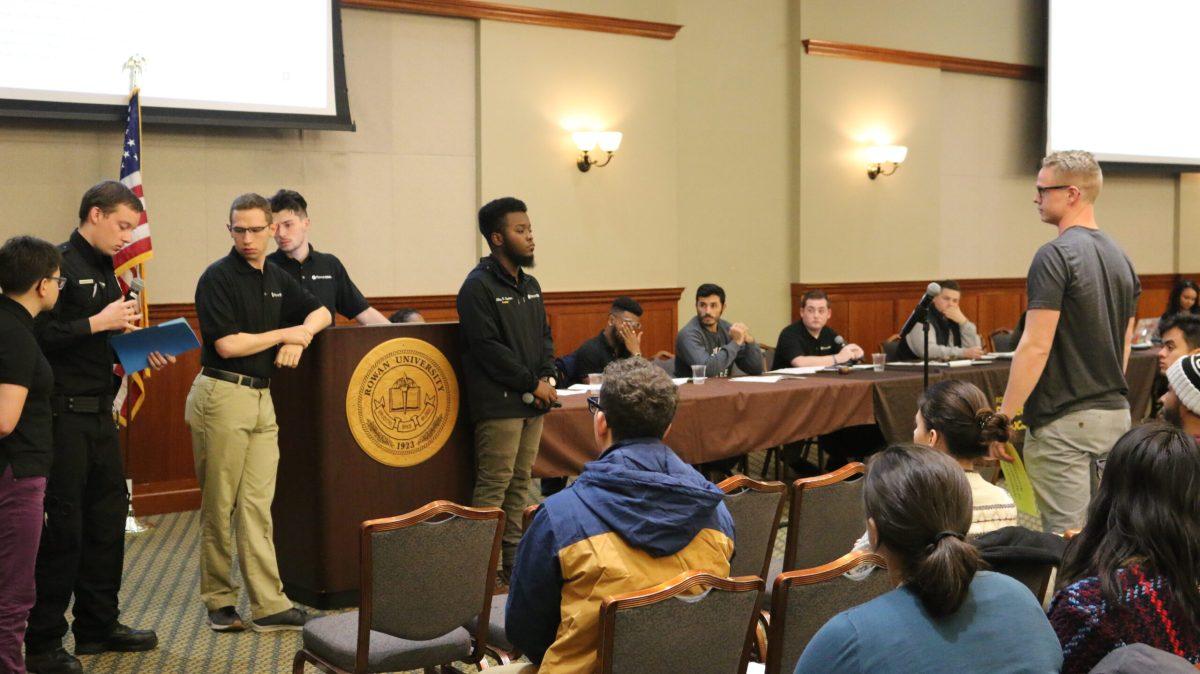As reported previously by Alexander Heller, the 2018 Rowan Student Government Association (SGA) Senate smacked down a healthcare resolution going by the name “Rowan Well,” which would have required each Rowan University student to pay an additional $50 fee that is tacked onto their beginning-of-the-semester bill. This fee would have provided, as reported by Heller, “six new counselors, three new healthcare educators, an alcohol and drug counselor, an OB-GYN nurse and a psychiatric nurse practitioner,” as well as “a fund for replacing Rowan EMS’s vehicles on a regular basis” and “the creation and upkeep of a new wellness center building on Rowan Boulevard.”
As an SGA Senator, I can say one thing about this year’s Senate: It is one of the most passionate, fiscally conservative bodies I have ever witnessed or have been apart of. Members throughout the year have been asking potential clubs and organizations looking to be chartered the difficult questions. They have been putting clubs and organizations that are up for decharterment on the grill, asking them why they deserve a second chance and how they plan on ensuring we do not find them here again. To sum up the theme of this particular congregation, they will stop at nothing to ensure your hard-earned money is allocated only where they deem productive and necessary, with little to no exceptions. They will even resort to stepping up to the mic in order to rally the room around a certain perspective they find is most beneficial to the university overall. Yes, really; like, “Braveheart” type stuff. Passion and fiscal conservatism is great, especially coming from someone who is an active member and current senator for the Rowan College Republicans Club (nothing I write now is on behalf of the club, simply personal opinion). However, there is a significant line between fiscal conservatism and fear of investment, and I believe this year’s Senate has fallen to the latter, for better or for worse.
The Senate environment is that of a courtroom at times. Any club or organization that has stood before that body, at least this year, has been put under an enthusiastic scrutiny. They take their jobs very seriously, as they should. If you ever plan on coming to this body to ask for charterment, you better prepare for every question in the book, and then some. The budget is precious, and allocating a few dollars to you is the last thing this body wants to do if you fail to articulate what makes your organization unique. When it comes to clubs and organizations, this mindset is great. We certainly do not need to be funding or providing services to organizations that may already exist on campus, or that may serve a purpose that is not in demand on this particular campus. However, it is my opinion that this particular Senate must think about the process of investment when it comes to healthcare in particular, or speak loudly to the student body in terms of individual fiscal responsibility.
Last year, we saw a huge problem rise when it came to Wellness Center copays and waiting lists. This issue upset a plethora of the student body, and with good reason. I would not want to wait an entire semester to receive the help I needed either. However, we simply cannot expect better results if we do not allocate the resources necessary to achieve those results. We are all sick of paying so much for college, right? Who the heck would want to pay more? Nobody, obviously. Notwithstanding this popular stance, we must think of the cost that comes with shutting down the possibility of implementing an added, collective fee. If we are not going to institute some sort of payment from the students, collective ($50 fee) or individual (copays), one of two things must occur: (1) resources must be cut from somewhere else or funneled from another portion of the campus where they are now being used, or (2) the current problem stands and we continue to allow the demand for health services to rise while remaining stagnant on expanding the center to better cater to the student body.
Unfortunately, nobody is getting less ill without treatment and the Wellness Center cannot magically expand without the necessary resources. It is time for Rowan students to make an important decision: do we want to collectively invest in our healthcare, or do we want to place the burden of cost on the individual receiving the service?
As someone who defines themselves as an all-around conservative, I am certainly more naturally drawn to the individual solution of allowing the person seeking the service to pay the price. However, this is not the setting of federal or state government, and I most certainly do not believe this university needs more than one healthcare provider to stimulate competition in order to lower prices. That would just be, well, asinine. In this one particular instance, it is my opinion that it is the duty of the collective to take on this burden, and here is why.
The demand is evident; this is not an empty investment like another statue on campus or something of that matter. There is no question that direct investment is necessary in our campus healthcare. Students are waiting ridiculous amounts of time to receive treatment or counseling, or whatever service they need. This is beyond unacceptable. If students were waiting a few days or maybe a week, I would support the idea of individuals coughing up the few extra dollars to aid in the expansion of the Wellness Center. The problem, though, has exceeded this simple remedy. We have waited too long, and we must face the inevitable consequences.
The demand may not remain as high as it currently is. Perhaps the demand dips in a few years. We must keep in mind that Rowan is continuously growing, and revenue is key in this growth. With the expected growth in revenue over time (which hopefully continues to occur), this fee could be lowered as the new Wellness Center expenses would be supplemented by these new growths in revenue. Therefore, we could keep the same quality of healthcare at a lower cost to us due to the university’s key investments. In other words, it takes money to make money, and if the university is unwilling to dish out the dollars it takes to make money in the future, we can kiss a quality healthcare system goodbye. However, the university is willing to make these investments. Rowan’s undeniable, exponential expansion is evidence of that. We have simply come to a bump in the road, and now is the time to act.
We have already failed as individual students unwilling to pay the copays. We have now failed as a group to lessen the cost on the individual through a collective payment. Where do we go from here? The cost has superseded that which your average college student is able to afford alone, which was evident through the uproar after the copay incident. We have no choice but to spread the cost to the collective if we want to save our campus health service quality. If not, we have years and years of wait lists ahead of us. Money must be spent, and we must stop trying to convince ourselves that we can expand our system without investment.
For questions/comments about this story, email editor@thewhitonline.com or tweet @TheWhitOnline.
























































































































































!["Working with [Dr. Lynch] is always a learning experience for me. She is a treasure,” said Thomas. - Staff Writer / Kacie Scibilia](https://thewhitonline.com/wp-content/uploads/2025/04/choir-1-1200x694.jpg)









































